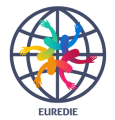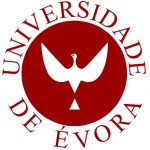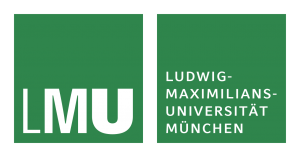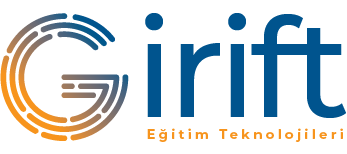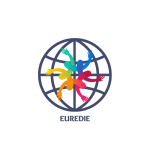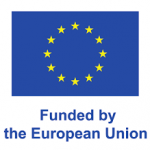EUREDIE
European Researcher Development and Engagement for Interculturality and Equity
2021-1-TR01-KA220-HED-000029594
News
EUREDIE Congress took place in İstanbul on November 23-24, 2023!!
EUREDIE Virtual Summer School starts on July 24, 2023!! Please check our website for details and to register, please visit https://tinyurl.com/2mbcprhd
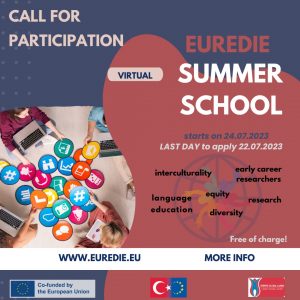
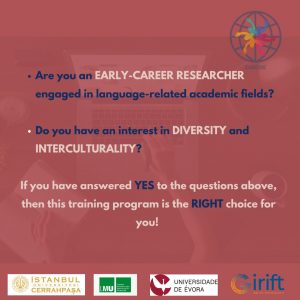
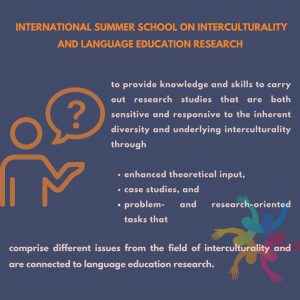
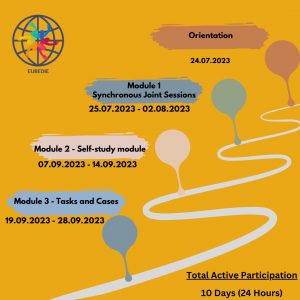
The EUREDIE Project Team is thrilled to announce that the EUREDIE Congress-2023 will be held in Istanbul on November 23 and 24, 2023!! We have three outstanding keynote speakers lined up for our conference! The submission deadline for abstracts is July 17, 2023!! To view information and submit abstracts, please visit https://euredie.eu/call-for-papers/
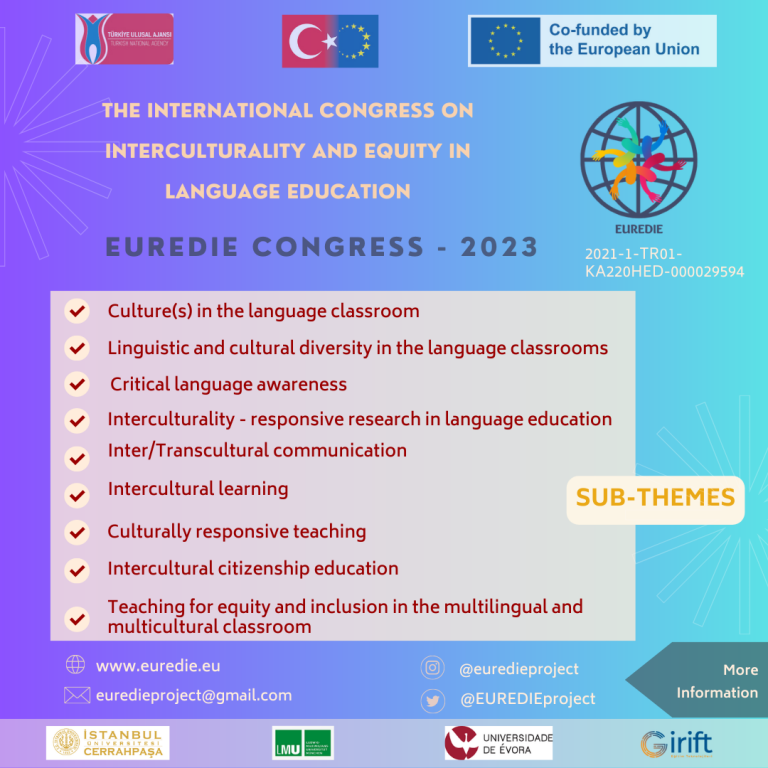
- In 25-26 May, 2023, the Second Transnational Project Meeting was held at Universidade de Évora in Spain.
- Our 2nd Virtual Multiplier Event was organized by Ludwig-Maximilians-Universität München on May 16, 2023.
- Our 1st Virtual Multiplier Event was organized by Istanbul University-Cerrahpasa on February 15, 2023.
- In December 8-9, 2022, the Second Transnational Project Meeting was held at Ludwig-Maximilians-Universität München in Germany.
- On April 25-26, 2022 the kick-off meeting of the Euredie project was held at the campus of the coordinating university, Istanbul-University Cerrahpaşa, in Turkey.
Project Description
EUREDIE is a transnational project designed to respond to the increasing concerns for inclusion, equity and equality by proposing an inclusive, accessible and sustainable researcher development and engagement path through an interculturality approach for a diverse group of early-career researchers (ECRs) involved in language education across Europe.
Project Number: 2021-1-TR01-KA220-HED-000029594
Granted Budget: 191.039,00 €
Start Date: 28-02-2022
End Date: 27-02-2024
Erasmus+ Project Results Platform: https://erasmus-plus.ec.europa.eu/projects/search/details/2021-1-TR01-KA220-HED-000029594https://erasmus-plus.ec.europa.eu/projects/search/details/2021-1-TR01-KA220-HED-000029594
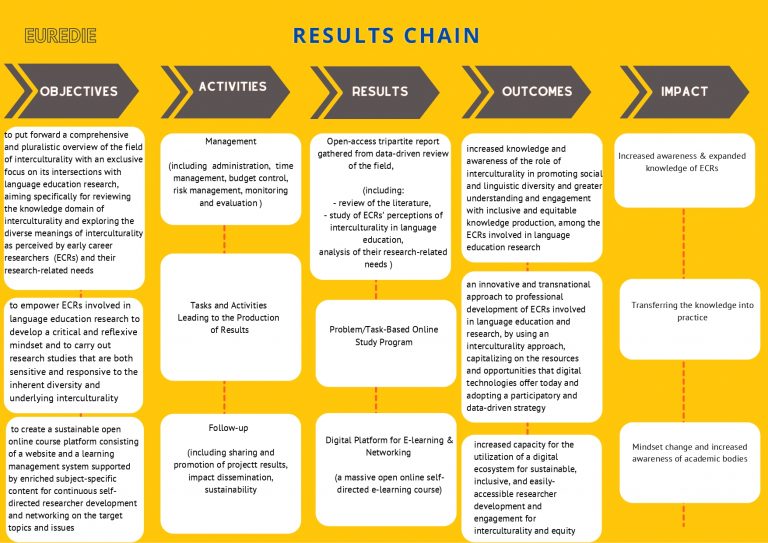
Background
Interculturality has a particular significance in the field of language education because it can relate to both linguistic and educational objectives, demanding exploration not in isolation but in association with related issues and disciplines. However, Interculturality, in language education, has mostly been misconceived as a specific and singular research topic, usually from an essentialist perspective, along the lines of one nation=one language=one culture equation. Against this backdrop, the EUREDIE project intends to capitalize on all the potential the field of interculturality offers to respond to the increasing concerns for inclusion, equity and equality, by proposing an inclusive, accessible and sustainable researcher development and engagement path for the ECRs involved in language education.

Objectives
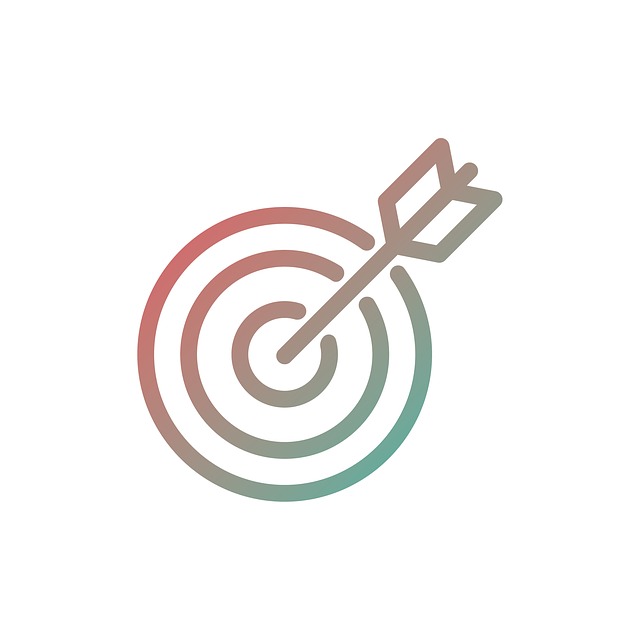
- The implementation of the project will renew the significance of the field of interculturality in relation to diversity-inclusive education and mainly serve the needs of the early-career researchers involved in language education.
- It will enable increased knowledge and awareness of the role of interculturality in promoting social and linguistic diversity and greater understanding and engagement with inclusive and equitable knowledge production, among the ECRs involved in language education research.
- It will also create increased capacity for the construction and utilization of a digital ecosystem for sustainable, inclusive, and easily accessible researcher development and engagement.
Target Group
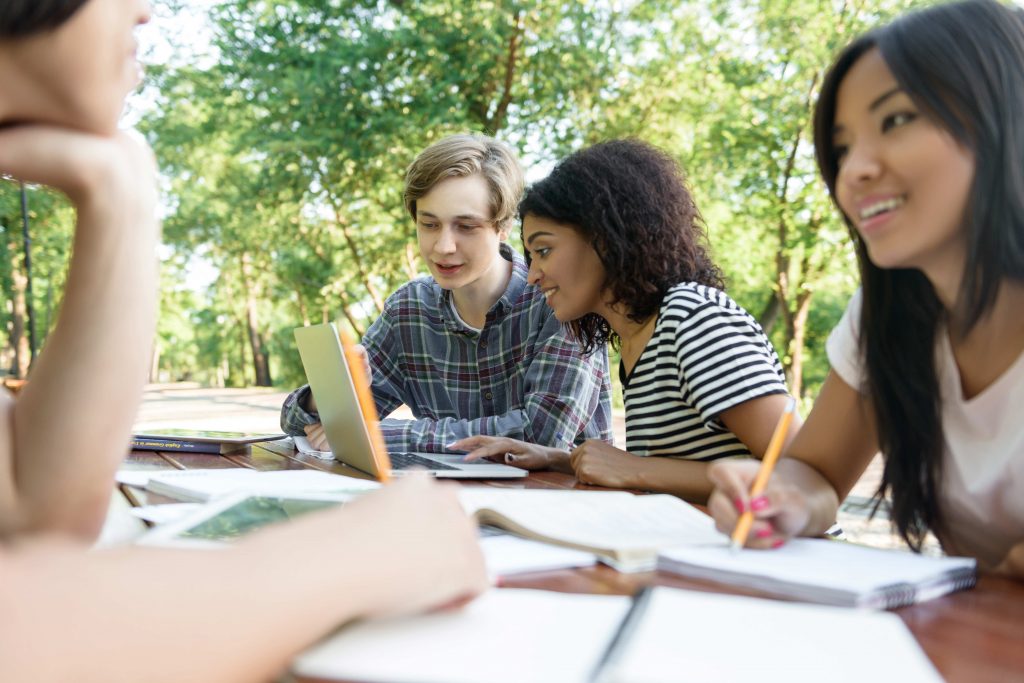
The main target group of the EUREDIE project is the early-career researchers (ECRs), including ongoing MA or PhD students, MA or PhD graduates who are within 5 years following the completion of their MA or PhD or equivalent professional training, postdocs, fellows or research assistants, engaged in language-related academic fields (e.g. English language teaching, linguistics, language studies, etc.) and/or in others involved in thesis and/or research focusing on language and interculturality related topics.
Results and Outcomes
The ultimate result intended by EUREDIE Project is the generation of an inclusive, accessible and sustainable researcher development and engagement path for the early-career researchers involved in language education research to address the increasing social and linguistic diversity involved in language education and research, by using an interculturality approach, capitalizing on the resources and opportunities that digital technologies offer today and adopting a participatory and data-driven strategy. To attain this overall result, the project aims to achieve the following specific results:
– Open-access tripartite report gathered from data-driven review of the field of interculturality,including the review of the literature across Europe in the last decade, ECRs’ perceptions of interculturality in language education and analysis of their research-related needs
– Problem/Task-Based Online Study Program offering a six-week three-module online intensive summer school for a select group of ECRs involved in language education
– Digital Platform for Researcher E-learning & Networking, comprising an online open self-directed e-learning component on interculturality and language education related issues, including embedded interactive e-portfolios, an online researcher’s handbook and an interactive space for discussion and networking.
TEAM
Partners
The project has four partners along with a coordinating partner.
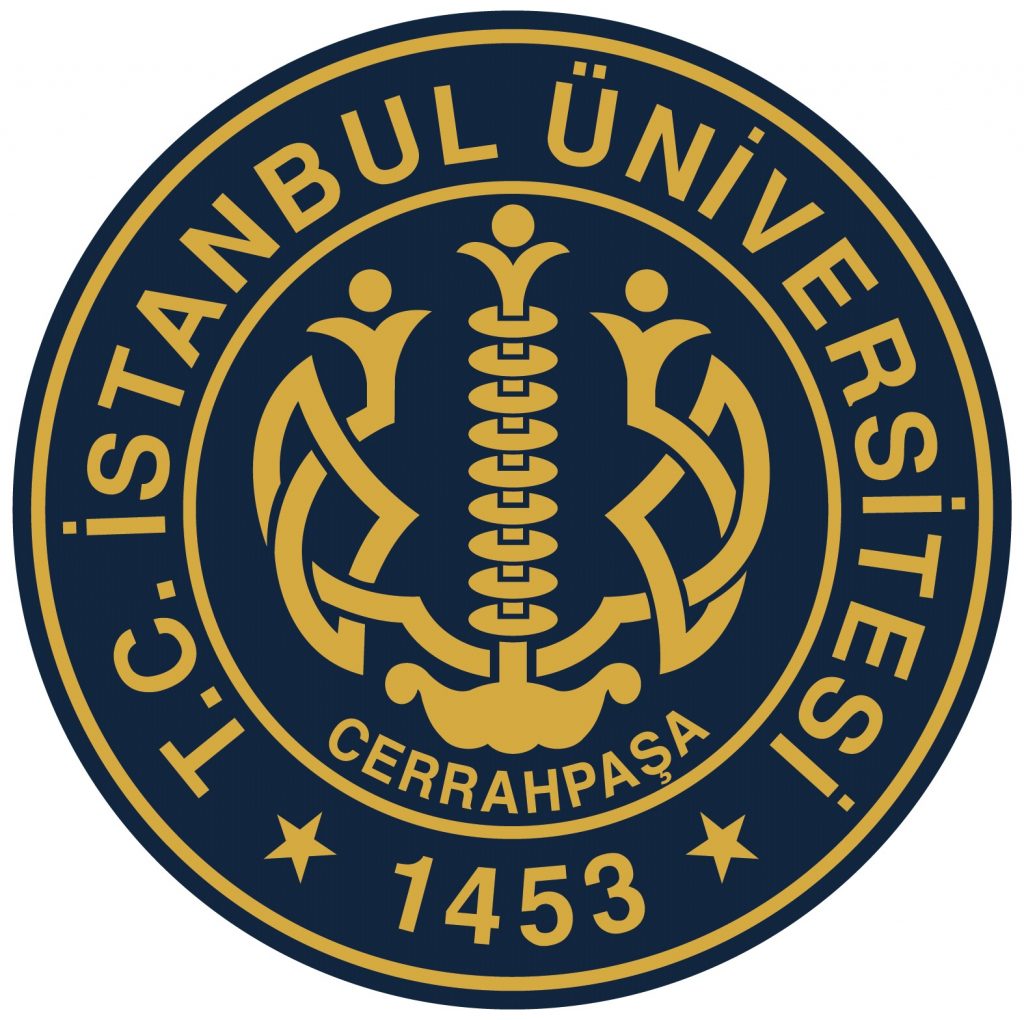
Yasemin Oral (Project
Coordinator)
Dilek İnal
Gülay Kıray
Nazlı Ceren Işıklıgil
Elif Bozyiğit
Scientific Advisory Committee
The Scientific Advisory Committee (SAC) serves as an independent expert board that advises the project team on scientific issues and to keep track of the fundamental focus of the project. Its main task is to scrutinize and offer advice on the progression, quality, achievement and impact of the project activities and results. It will thus contribute to ensure the academic, scholarly, and methodological quality of the project work.
The SAC is made up of three external scholars with expertise and experience in the activity areas of the project:
Prof. Dr. Adrian Holliday
Canterbury Christ Church University
https://www.canterbury.ac.uk/people/adrian-holliday
Prof. Dr. Manuela Guilherme
University of Coimbra
https://ces.uc.pt/en/ces/pessoas/investigadoras-es/maria-manuela-guilherme
Prof.Dr. Christiane Lütge
Ludwig-Maximilians-Universitaet Muenchen
https://www.tefl.anglistik.uni-muenchen.de/staff/luetge/index.html
RESULTS AND RESOURCES
Project Result 1
Tripartite Report: Data-driven Review of The Field
Leading Institution: Ludwig-Maximilians-Universitaet Muenchen
The intended inclusive and sustainable character of the overall result, researcher development and engagement path, requires by nature a participatory approach rooted in the target group’s own perception of interculturality and their needs as well as a pluralistic perspective on interculturality. The first result of the project will thus entail an open-access tripartite report that will be gathered from the data-driven review of the field of interculturality with an exclusive focus on its intersections with the field of language education. The review will be structured around three core components:
- review of the literature across Europe in the last decade, with the aim of mapping and outlining the theoretical, conceptual and methodological aspects of the field
- ECRs’ perceptions of interculturality in language education, with the aim of exploring and identifying the diverse meanings of interculturality at a variety of levels ranging from the personal and institutional to the national and global levels as perceived by ECRs
- analysis of ECRs’ research-related needs, with the aim of putting forward ECRs’ needs to be able to design and carry out research studies that are sensitive and responsive to the underlying interculturality
RESULTS AND RESOURCES
Project Result 2
Problem/Task Based Online Study Program
Leading Institution: Universidade De Evora
The second result will center on an online study program which is the core element of this project as it connects all other project results. Building upon the tripartite comprehensive and pluralistic overview of the field of interculturality, this result seeks to develop and provide the selected ECRs with an online problem/task-based researcher development program through the use of case studies and problem-oriented and research-oriented tasks that comprise different issues from the field of interculturality and are connected to language education research. I is directed to empower ECRs to carry out research studies that are both sensitive and responsive to the inherent diversity and underlying interculturality.
This result includes a six-week online intensive summer school that will be offered to 60 ECRs involved in the project. The program will be organized in three two-week modules: the first module will involve synchronous joint sessions of core seminars and workshops pertaining to the theoretical and methodological perspectives and issues of the field, the second module will incorporate self-study days supported by interactive discussion, exchange and reflection sessions that will be carried out simultaneously by the selected mentors from each partner university and will involve a joint round-table discussion at the end, and finally the third module will be composed of joint sessions focusing on case studies and problem-oriented and research-oriented tasks in light of the first two modules of the study program. The intensive summer school modules will be delivered online through the digital platform created.
The development and successful implementation of this rather small-scale interactive study program will be twofold: it will allow piloting, testing and refining the main components of the content that will be delivered through the self-directed elearning and networking platform in the third result and it will provide a model for a wide variety of professional development programs across diverse higher education systems that aim at digitalization for wider, easier and more inclusive accessibility.
RESULTS AND RESOURCES
Project Result 3
Digital Platform for E-learning and Networking
Leading Institution: Istanbul Universitesi – Cerrahpaşa
The third result will involve a digital platform for researcher development and networking. This digital platform will be the ultimate result of the EUREDIE project, offering a massive open online self-directed e-learning course centered around the issues of interculturality, inclusion, diversity and language education for the early-career researchers (ECRs) involved in the related fields. It will also provide a moodle-integrated module for the delivery of the content developed in the second result.
The web platform will entail the following components: a course website and a moodle-integrated online study module that will be transformed into a self-directed e-learning course after the study program for the project participants is over, embedded interactive e-portfolios, an online researcher’s handbook, and an interactive space for discussion and networking. The model and content of the e-learning course will be generated on the basis of the online study program to ensure wider, continuous, self directed development of the ECRs in the same manner of a massive open online course while interactive e-portfolios will serve as a means of critical reflexivity, process-orientation and qualitative data collection. All the participants including trainers, mentors and ECRs will be asked to produce interactive eportfolios at this stage of the project. This result will also include developing an online open-access handbook which draws and describes a conceptual landscape that addresses how the theories attempt to explain interculturality, entails both the new perspectives regarding various facets of interculturality achieved throughout the study program, and maps a variety of research frames and perspectives together with a user manual for selfdirected e-learning. Finally, it will include a collaborative environment for ECRs where they complete the interactive tasks in groups, conduct discussions and exchange opinions on subjectrelated topics and build networking with other ECRs from their field of interest.
This result is intended to increase capacity for wider, accessible, self-directed development of the ECRs to promote diversity, inclusion and equity in a critical and reflexive manner. The collaborative environment aims at serving as a sustainable channel of interaction and current / future networking space for ECRs. Overall, such a digital ecosystem for massive selfdirected researcher development will provide the means for reaching an unlimited number of ECRs internationally and in turn a wide potential for increased knowledge and awareness of the role of interculturality in promoting social and linguistic diversity and greater understanding and engagement with inclusive and equitable knowledge production far beyond the partnership.
EVENTS
Transnational Meetings
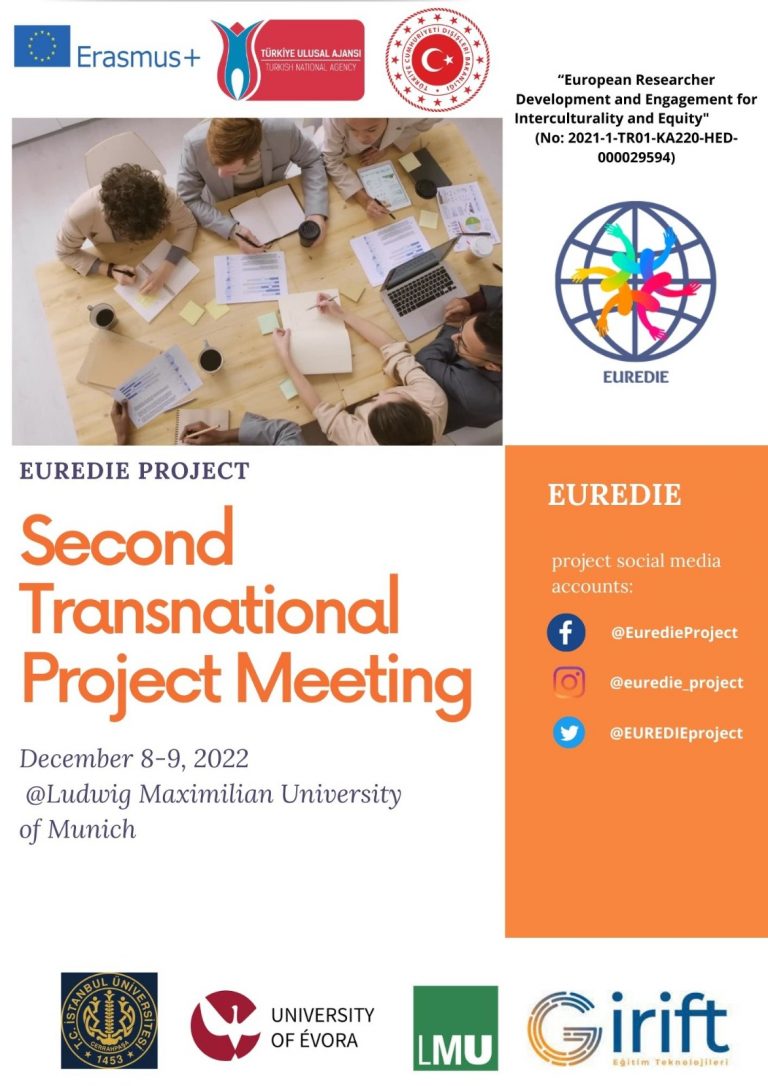
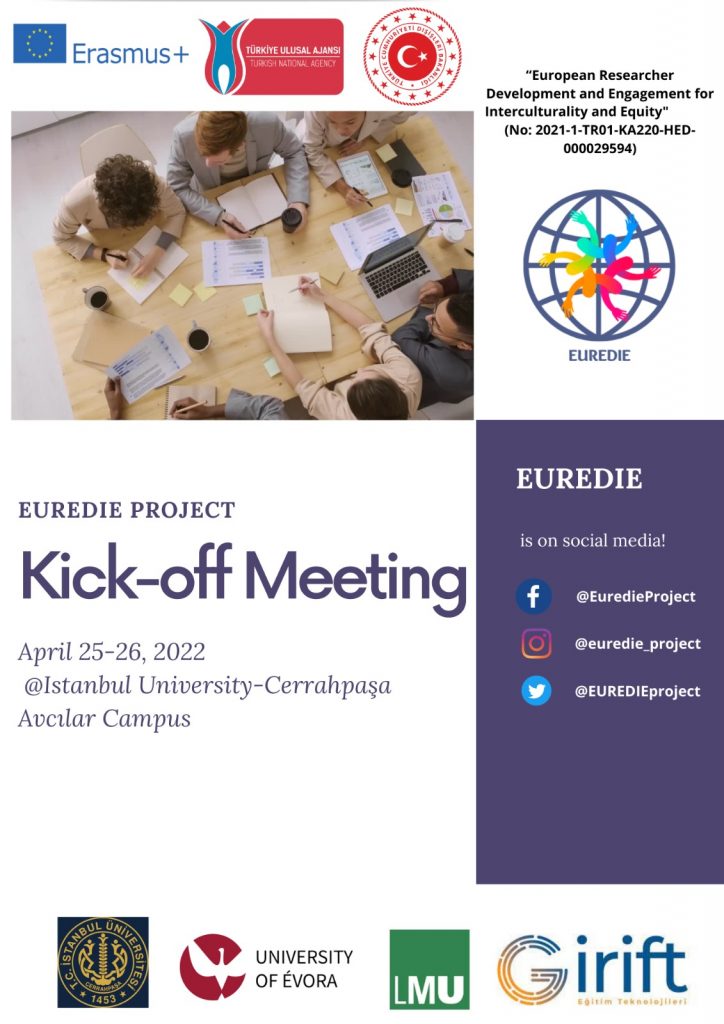
EUREDIE CONGRESS - 2023
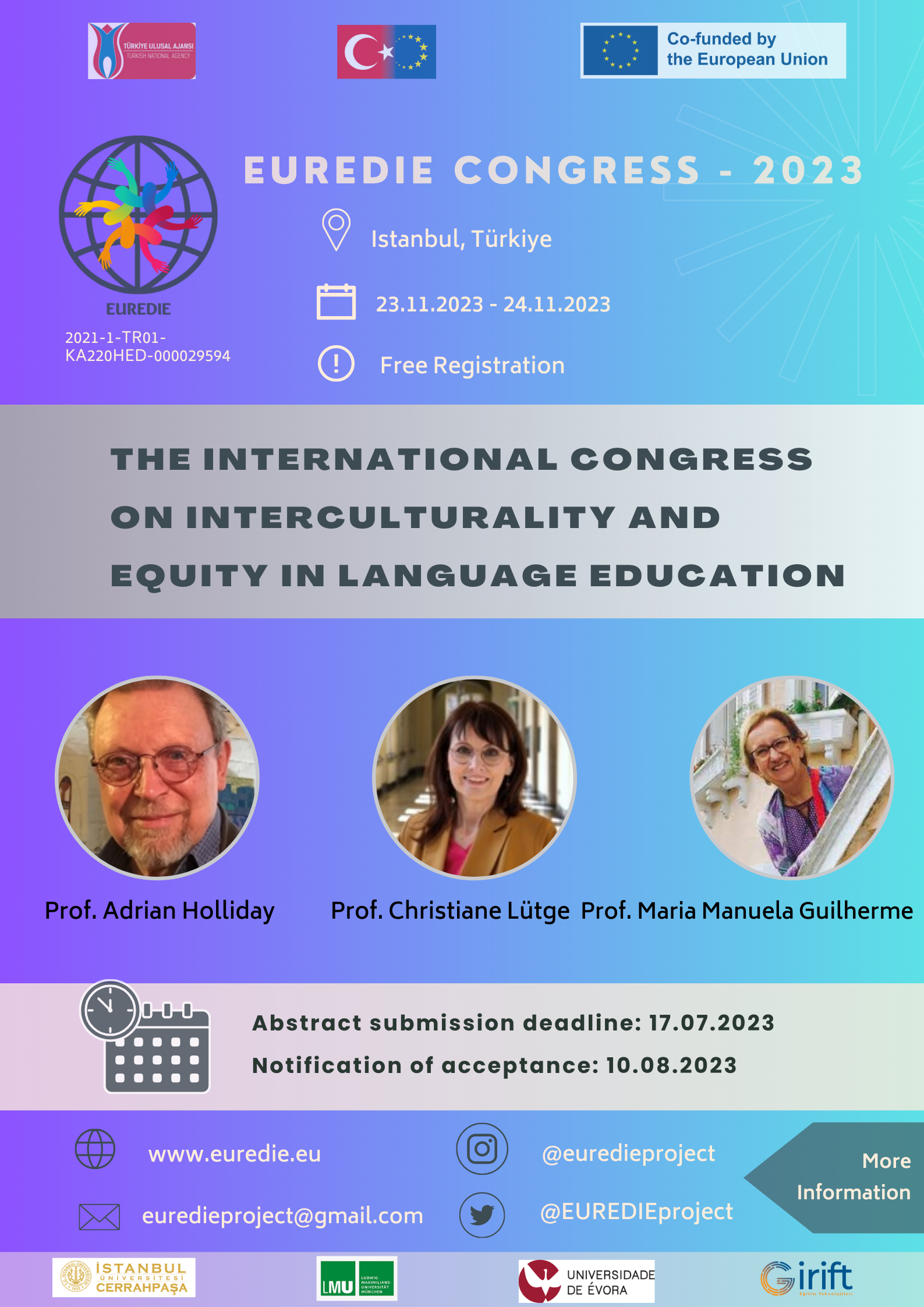
Virtual Multiplier Events
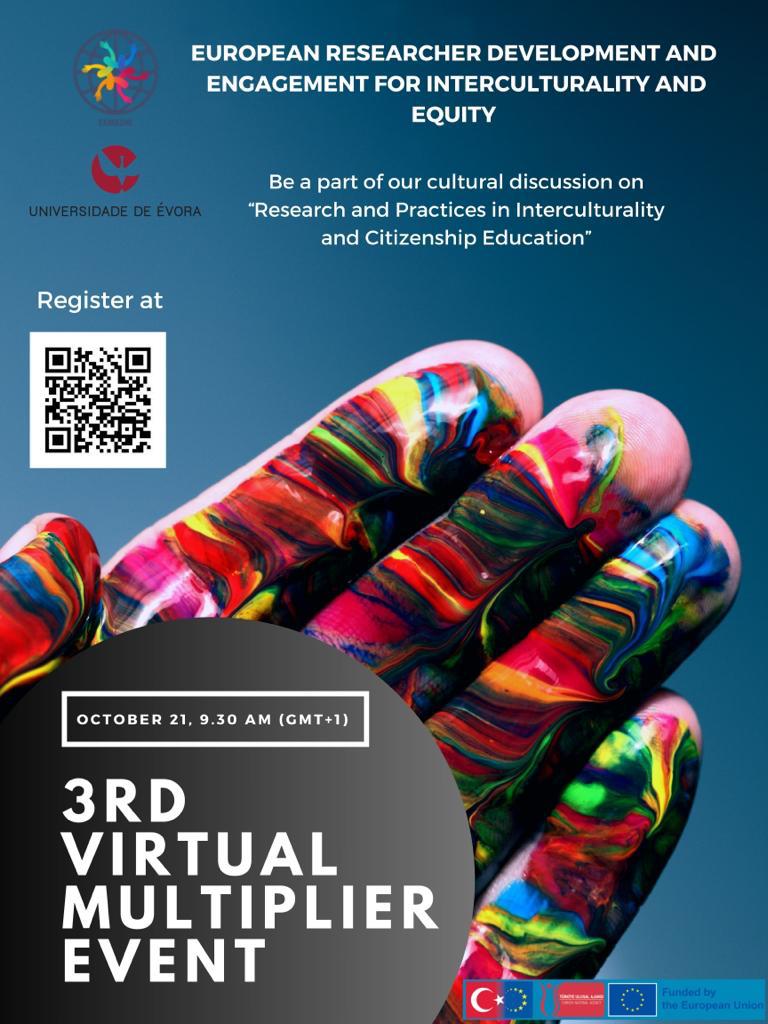
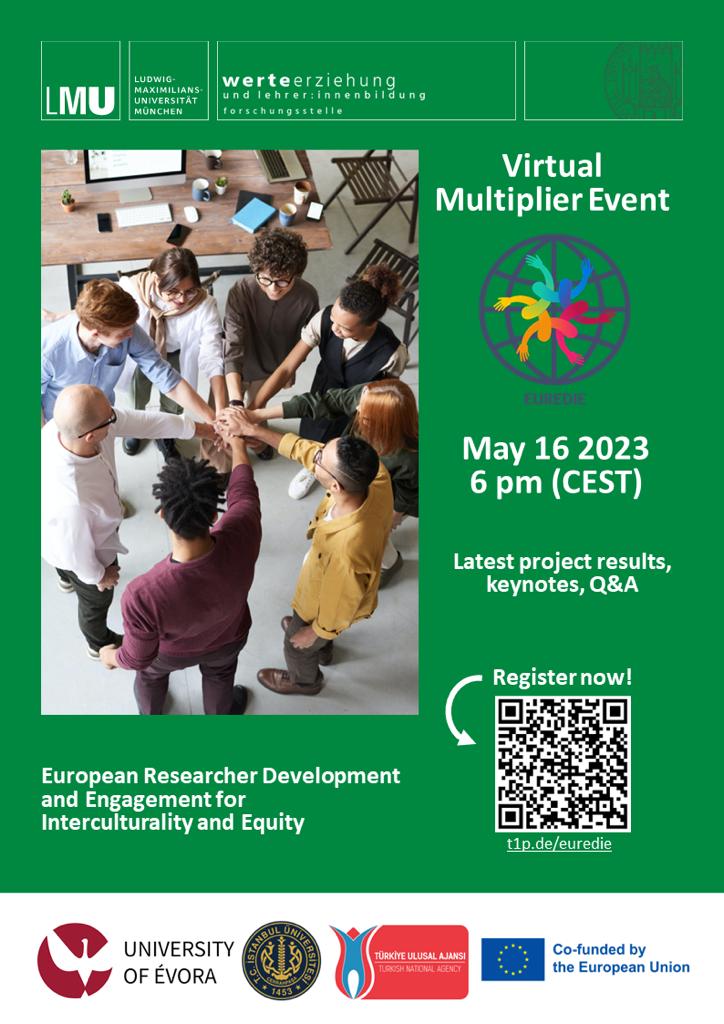


Gallery
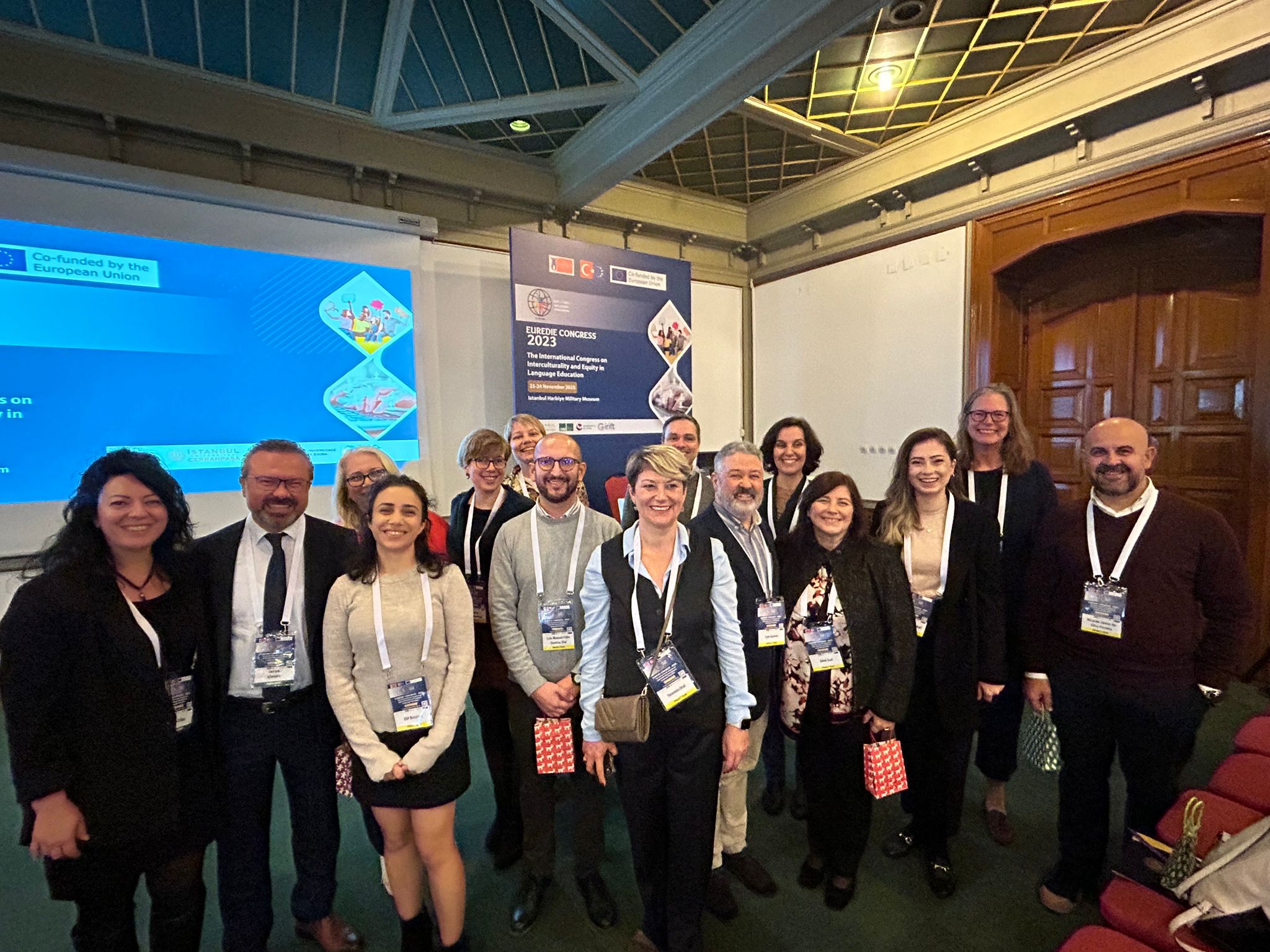
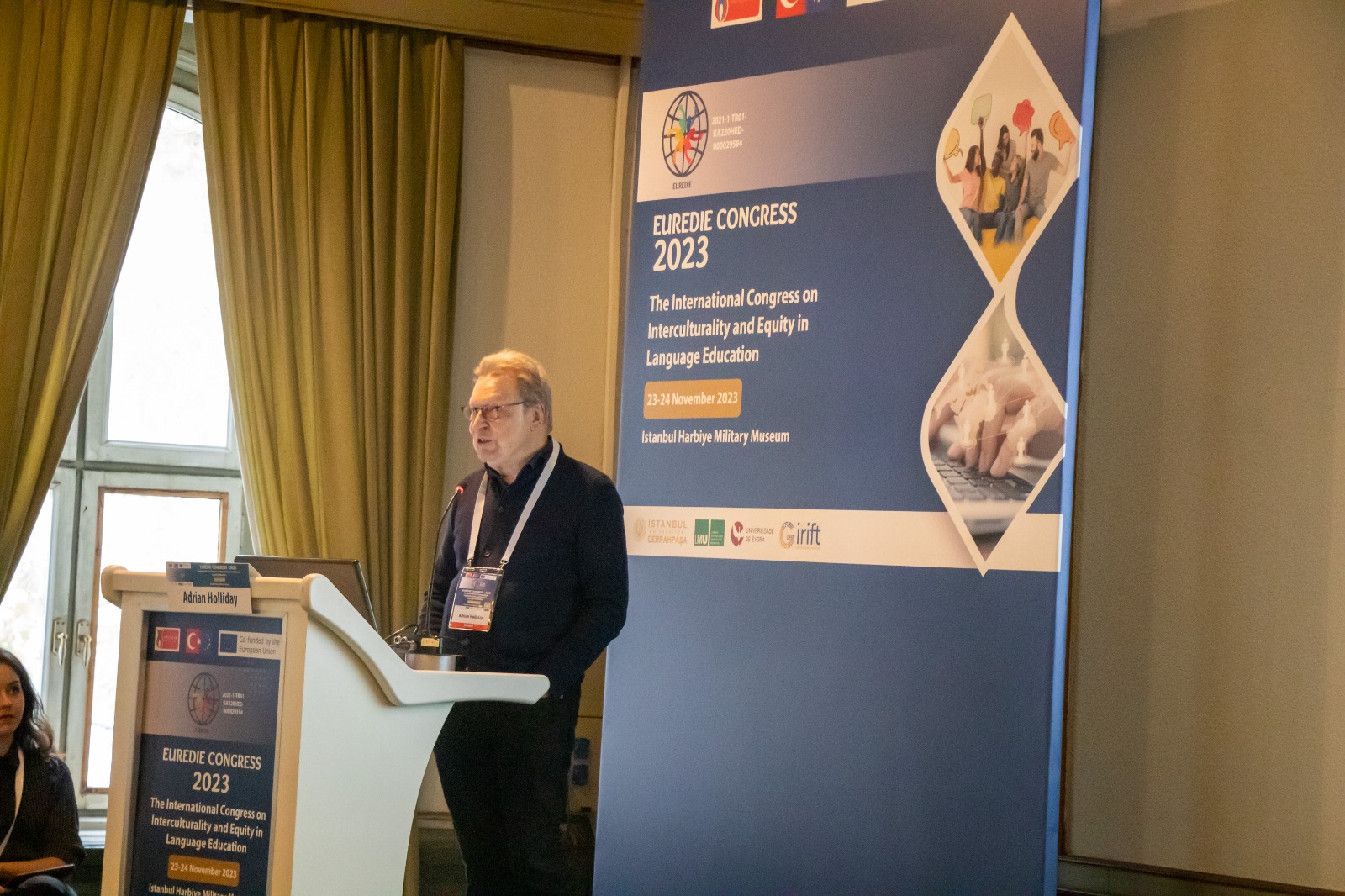
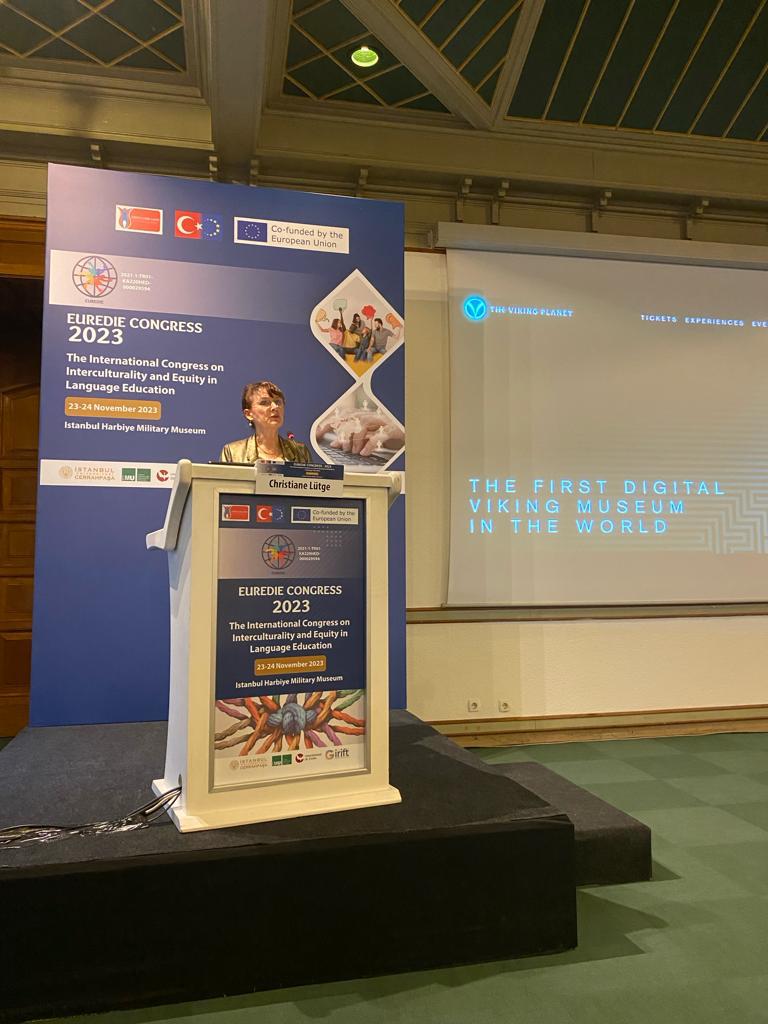
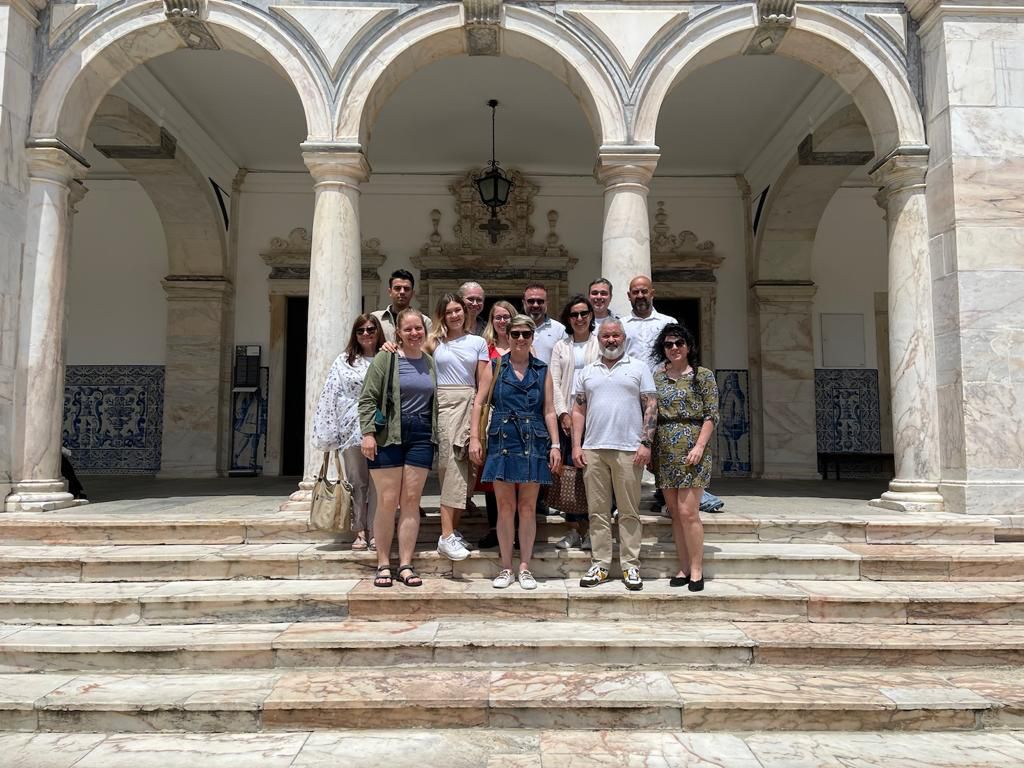
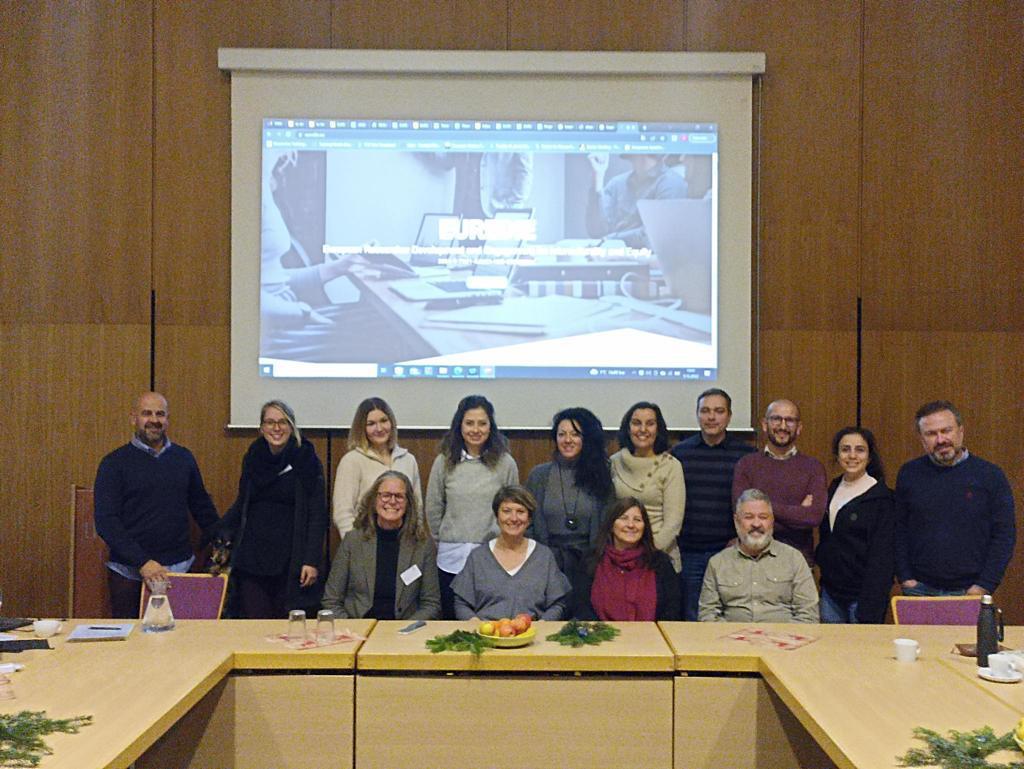
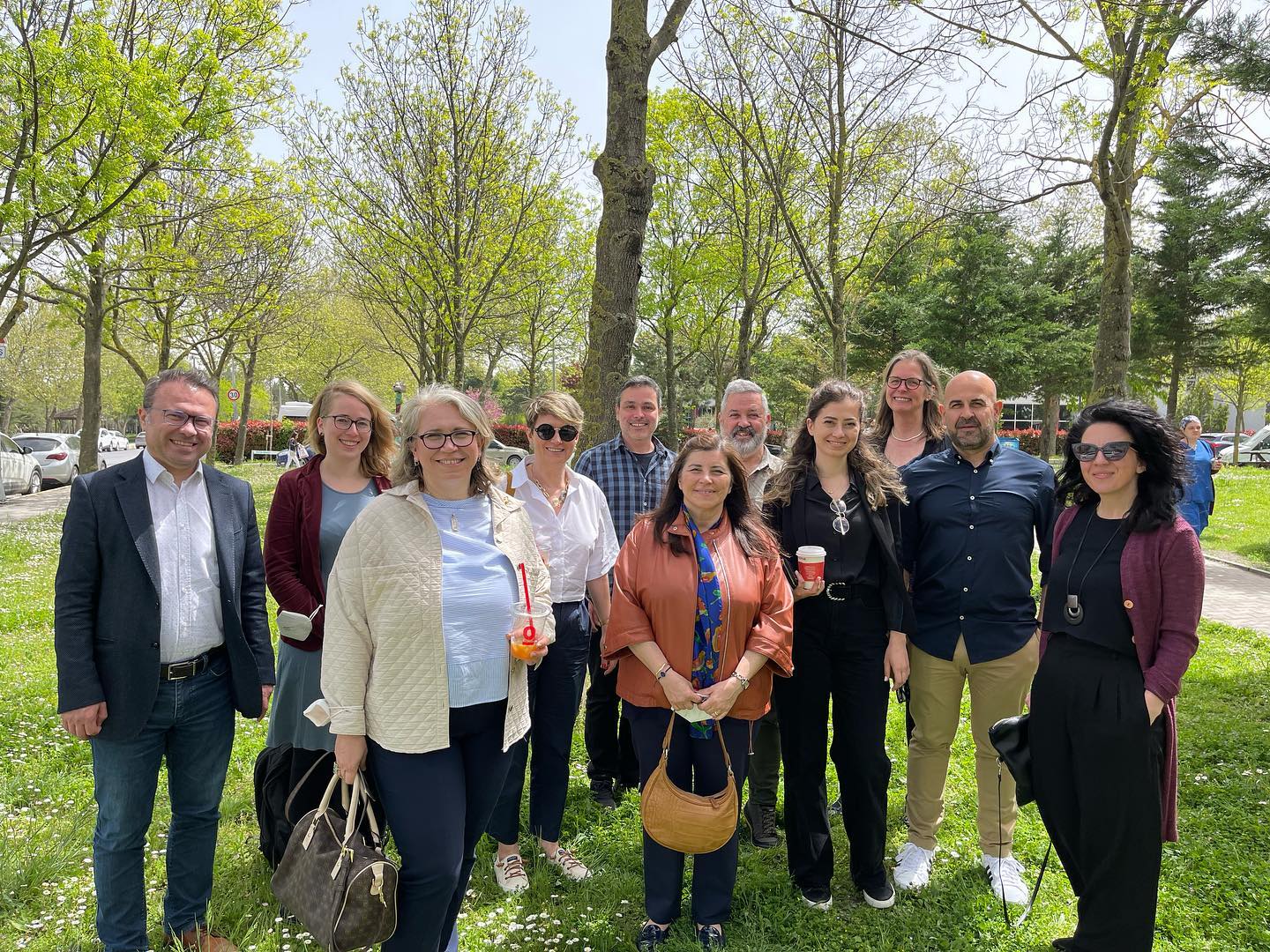
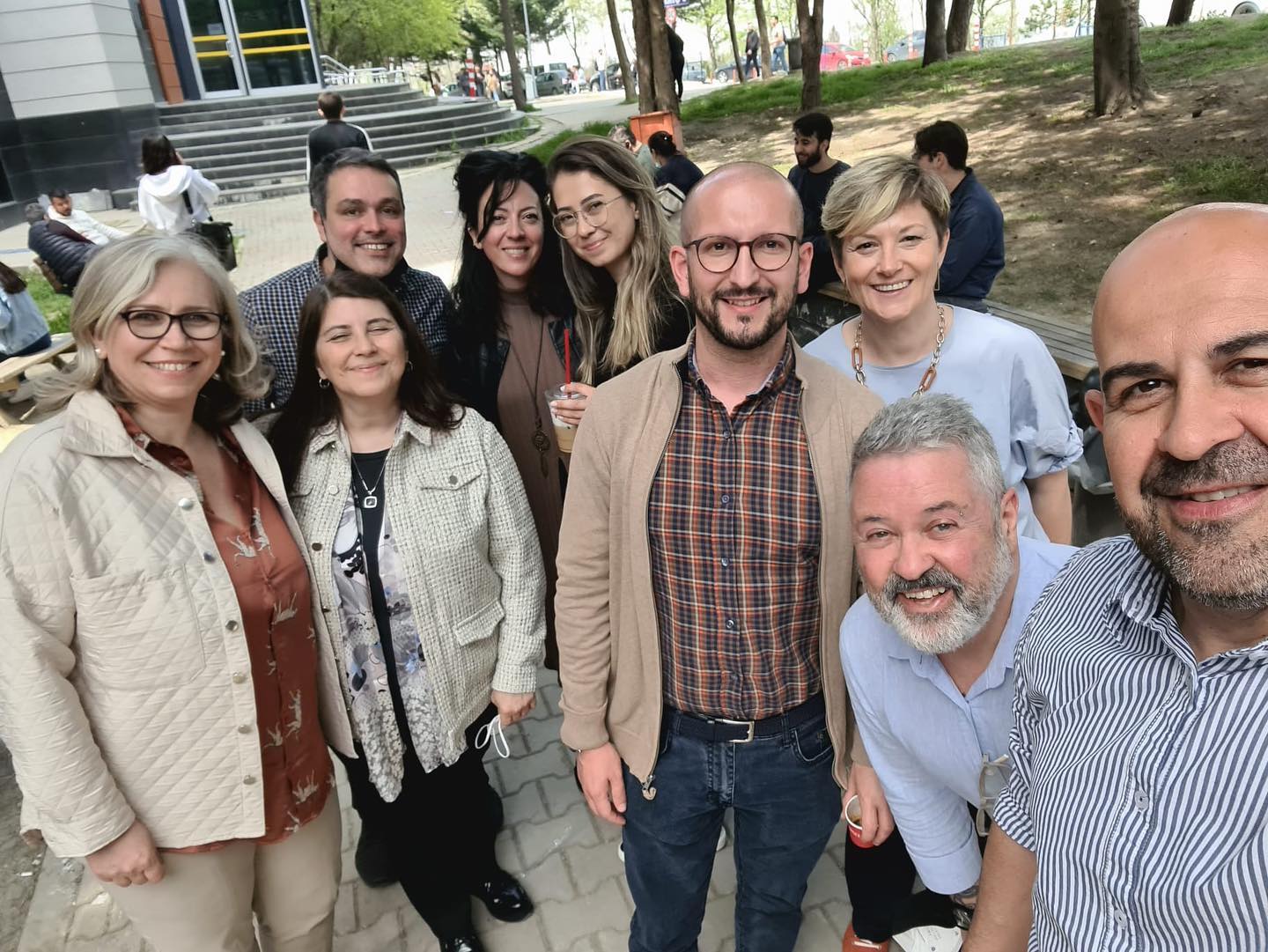
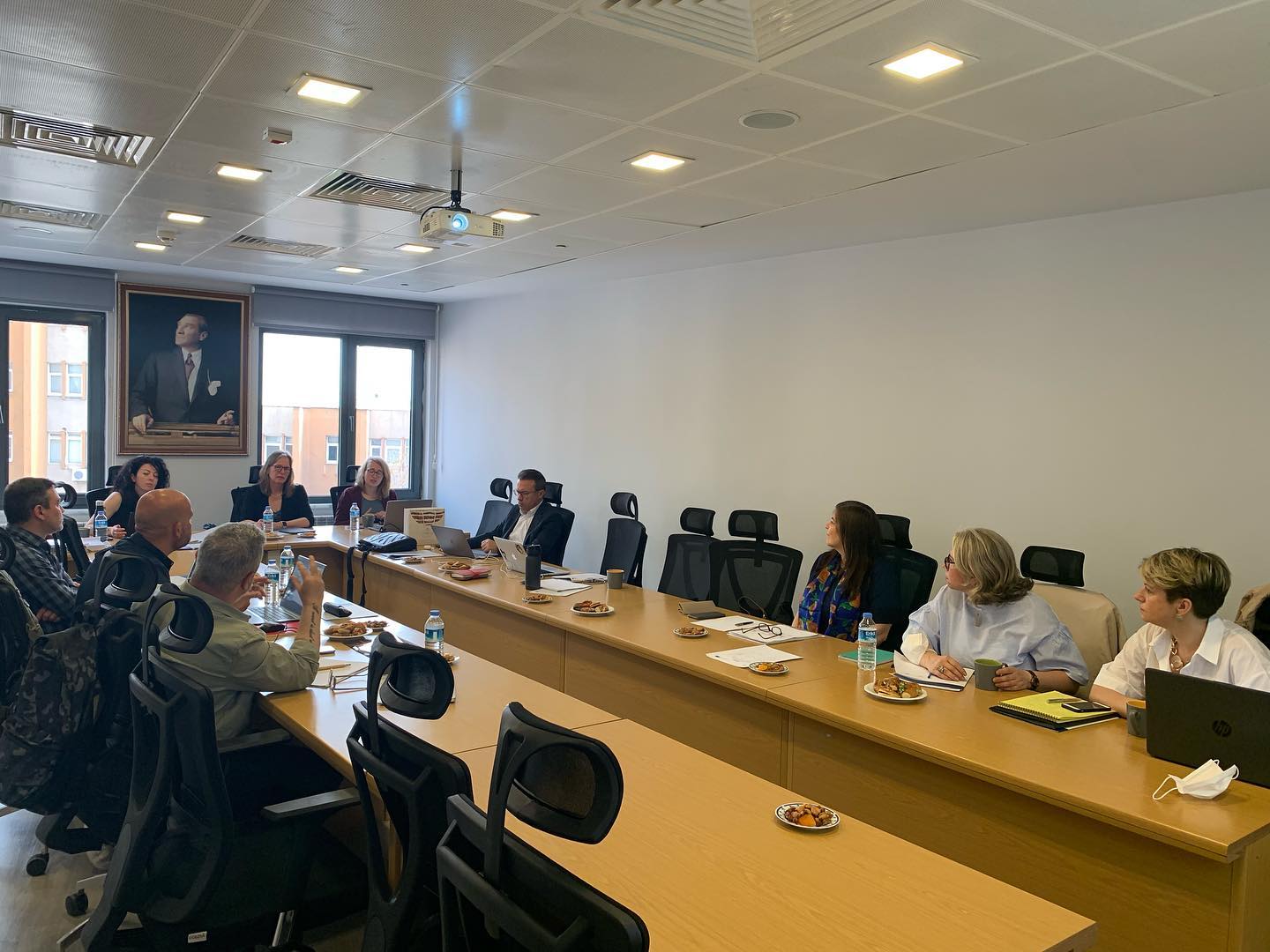
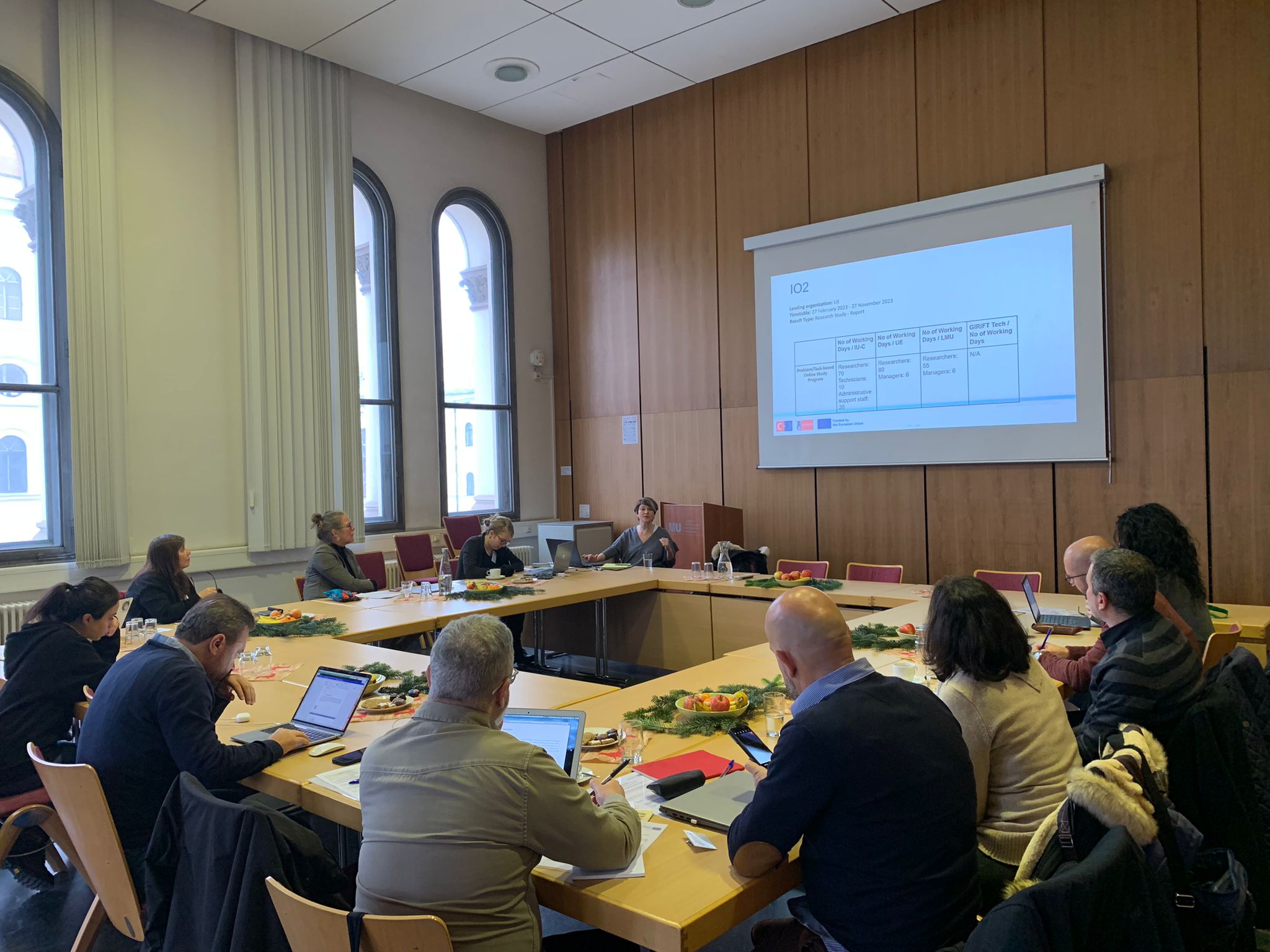
Contact
Contact Us
euredieproject@gmail.com
Reach Us
İstanbul Üniversitesi-Cerrahpaşa Büyükçekmece Yerleşkesi Alkent 2000 Mah. Yiğittürk Cad. No:5/9/1 Büyükçekmece/İstanbul
